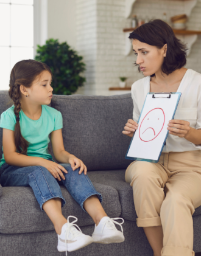In recent years, adolescent mental health issues have frequently become the focus of social attention. From school bullying to academic pressure, from parent-child conflicts to social anxiety, children's psychological distress is becoming increasingly complex and younger.The mental health problems of adolescents have attracted strong social attention in recent years. It is essential to leverage the main channel of classroom teaching, accelerate the development of mental health courses, and enable students to master mental health knowledge and skills. Increase publicity and education efforts, popularize mental health knowledge, adhere to the combination of education and service, and view mental health issues scientifically and rationally, fostering students' awareness of self-help, mutual assistance, and seeking help. Increase investment and improve the professional level of school mental health education and service teams; not only should the number of practitioners be increased, but their training and continuing education should also be strengthened.

The following families are most likely to have depressed children
Families with strong control desires
Treat children as part of themselves, ignore their inner needs, strictly control every move, and even want to control their children for life. They control their children's friendships, studies, and even work and emotions in the name of love, deprive children of all their autonomy, and arbitrarily carve their children into what they want.
Loveless families
If a child lacks the love of his parents during his growth, he is very likely to develop psychological disorders and become depressed. Severe family turmoil, such as divorce, lack of parental love and companionship, can easily lead to depression in children.
Families that often belittle and deny their children
Parents' belittlement and denial are the most poisonous medicine. No matter what the child does or how he does it, he is denying him, like a basin of cold water poured on a child covered in injuries.
Families that require children to be sensible and obedient
The more sensible children are, the more likely they are to suffer from depression. Those children who have been obedient since childhood have actually been suppressing their "self" and dare not ask for snacks or toys, and they suppress their desires and wave their hands to refuse.
Parents who always ignore their children Emotional neglect is more cruel than violence
No matter what the child says or does, the parents are indifferent and perfunctory. It is difficult for parents to admit the pain and bad emotions suffered by their children. In the face of their children's requests for help, they are indifferent and even think it is the child's fault, as if the child can make the choice himself.

The inclusion of mental health education and the implementation of relevant measures will not only help improve the mental health level of adolescents, but also promote their all-round development. By setting up mental health support institutions in schools and communities, adolescents can get timely psychological support and intervention in the process of growing up, helping them better cope with the challenges in life. At the same time, the popularization of mental health education can also increase the whole society's attention to mental health and create a healthier and more harmonious growth environment.
Listing mental health as a compulsory course is essentially a return to the essence of education-cultivating people with physical and mental health is far more important than creating "exam machines". When children learn to say "I need help" in class, understand that "failure is not the end" in games, and feel the "warmth of being understood" in collaboration with their peers, they can truly grow into a new generation with warmth and resilience. This requires schools to innovate curriculum design, parents to put aside their anxiety and listen to their children, and society to provide more support resources. Only when all parties work together can every young heart be bathed in sunshine and move forward bravely.


